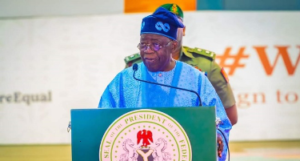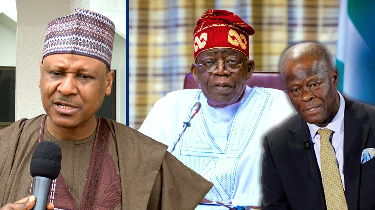President Bola Tinubu has directed the Minister of Finance, Wale Edun, to develop a comprehensive template for a new minimum wage. This directive was communicated by the Minister of Information and National Orientation, Mohammed Idris, during a briefing in Abuja on Tuesday, following a meeting between the Federal Government delegation on the new minimum wage and the President.
Idris explained, “The President has instructed the Minister of Finance to conduct the necessary calculations and report back to him between today and tomorrow. This will allow us to have concrete figures ready for negotiations with Labour. The President is committed to considering the recommendations of the committee. He is also deeply concerned about the welfare of Nigerians.”
The Minister emphasized that the government is not opposed to labour or wage increases. The Federal Government delegation present at the meeting included Idris; Wale Edun; the Secretary to the Government of the Federation, George Akume; Labour Minister Nkiruka Onyejeocha; Minister of Budget and Economic Planning, Atiku Bagudu; the Chief of Staff to the President, Femi Gbajabiamila; and the Group Chief Executive Officer of the Nigerian National Petroleum Company (NNPC) Limited, Mele Kyari.

In a significant development earlier on Tuesday, the Organized Labour suspended its nationwide strike, which had commenced at midnight on Monday. This decision came after Akume announced on Monday night that President Tinubu was committed to establishing a national minimum wage exceeding ₦60,000. Akume stated, “The tripartite committee is to meet every day for the next week to reach a consensus on a national minimum wage. In respect for the President, the Organized Labour has agreed to convene a meeting of its organs immediately to consider the President’s commitment.”
The strike had disrupted various sectors, including businesses, airports, universities, hospitals, and power supply. The Nigeria Labour Congress (NLC) and the Trade Union Congress (TUC) initiated the indefinite strike on Monday, demanding a new minimum wage. They argued that the current minimum wage of ₦30,000 was insufficient to meet the needs of an average Nigerian worker. Furthermore, they highlighted that not all governors were adhering to the current wage, which had expired in April 2024, five years after the Minimum Wage Act of 2019 was signed by former President Muhammadu Buhari. The Act mandates a review every five years to align with contemporary economic demands.
Labour had initially set a May 31 deadline for the Federal Government to establish a new minimum wage. When this deadline passed without resolution, the workers’ unions declared a nationwide strike beginning on Monday, June 3, 2024. The strike was also a response to the government’s failure to agree on a new minimum wage and its decision to reverse the electricity tariff hike.
During the negotiations, Labour rejected three offers from the government, the latest being ₦60,000. The TUC and NLC subsequently withdrew from the talks, insisting on a new minimum wage of ₦494,000.
This ongoing situation highlights the urgent need for the government and labour unions to find a mutually acceptable solution. The outcome of these negotiations will significantly impact the economic well-being of Nigerian workers and the overall stability of the country’s labour market. The President’s directive to the Minister of Finance is a crucial step towards resolving this impasse and ensuring that Nigerian workers receive a fair and adequate minimum wage.




